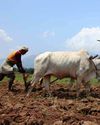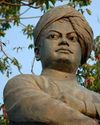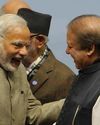Only a society entirely constituted by enlightened beings can afford to dispense with smriti. All other societies need both sruti and smriti.

LAST MONTH, WE saw how the individual is both the product and the creator of tradition, though the latter possibilities are often denied to most ordinary people. But just as our genes are previously given to us, our traditions have already left their mark on our minds. This is true also of traditions of discontinuity and rejection. That is why it is possible to argue for a tradition of modernity, which we may characterise as disruptive and contra-distinctive from traditions of affirmation and continuity. Though tradition, in the broader sense of the totality of genetic information, does not exhaust the capacities or possibilities of our physical and mental existence. It provides the base, but not necessarily the limits. Therefore, each individual must reprocess his tradition in the light of his own experiences; some merely pass it on, while others change it, even to the extent of effecting a mutation. Any process of recreation thus involves a rejection of some aspect of the inherited past as it does a reinvention or revitalisation of others. Socially, too, this process happens sometimes smoothly, at other times violently, in a cataclysmic rupture.
This story is from the August 2017 edition of Swarajya Mag.
Start your 7-day Magzter GOLD free trial to access thousands of curated premium stories, and 9,000+ magazines and newspapers.
Already a subscriber ? Sign In
This story is from the August 2017 edition of Swarajya Mag.
Start your 7-day Magzter GOLD free trial to access thousands of curated premium stories, and 9,000+ magazines and newspapers.
Already a subscriber? Sign In

Refuging Progess
There is a well-orchestrated global conspiracy to deny scientific and technological developments from the West to Third World countries.

The Monk Of Science
Vivekananda believed that Religion should be subjected to scientific methods of investigation. The third and concluding part of our series on the Swami and his views on science.
The Next Step
Indian technical manpower can be trained for high-value-added emerging services in the era of mass commoditisation of hardware.
The Threat Of Autarchy
The force of globalisation is an irreversible reality, and it is countries like India and China that will nurture it going forward.

Neanderthals: The Womb Of Caves
Recent discoveries indicate that Neanderthals may have had a rich inner life, including symbolic thought. Indeed, they may have been the progenitors of human religions.

Getting India's World Right
Incremental concessions will get India nowhere with Pakistan and China. What we need is a classically conservative foreign policy, based on realism.

The Hesitant Orbit
In order to march boldly ahead into the deep space, New Delhi must work towards building a station, boost its techno-economic planning and use the Indian Space Research Organisation smartly.

Nudges And Narratives
The debate surrounding Sanjay Leela Bhansali’s Padmavati brings India a complex network of portraits within a cultural world-system.

The Spell Of Specialisation
THE INDIAN ADMINISTRATIVE SERVICE NEEDS AN URGENT REJIG. THE KEY TO SPEED AND EFFICIENCY LIES IN PUTTING AN END TO A GENERALIST APPROACH AND IN GOING FOR A NEW SERVICE.
The Great Gamble
With demonetisation, the prime minister has taken a huge risk— both economic and political. He must succeed, because this move could transform both our economy and our society.